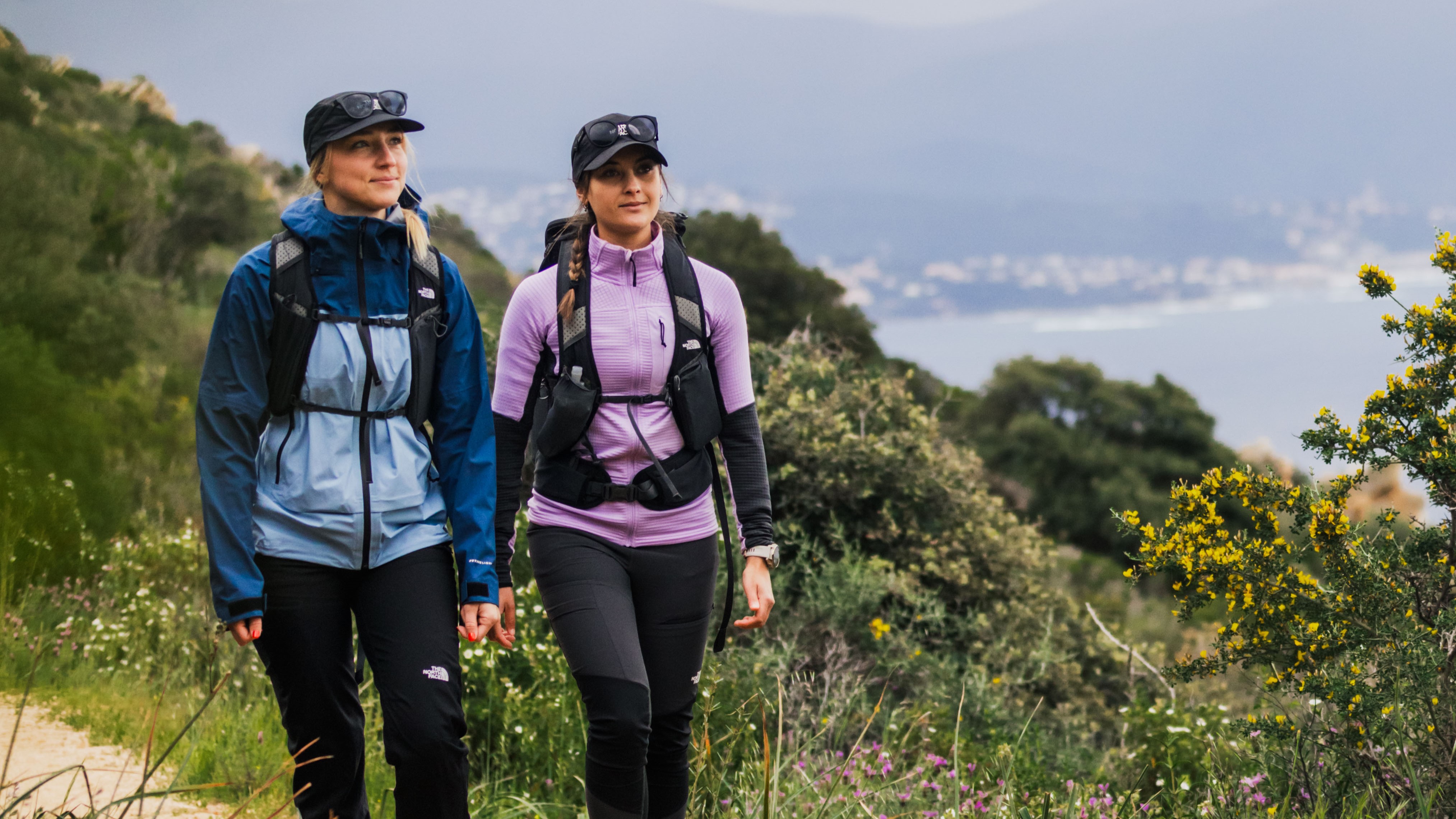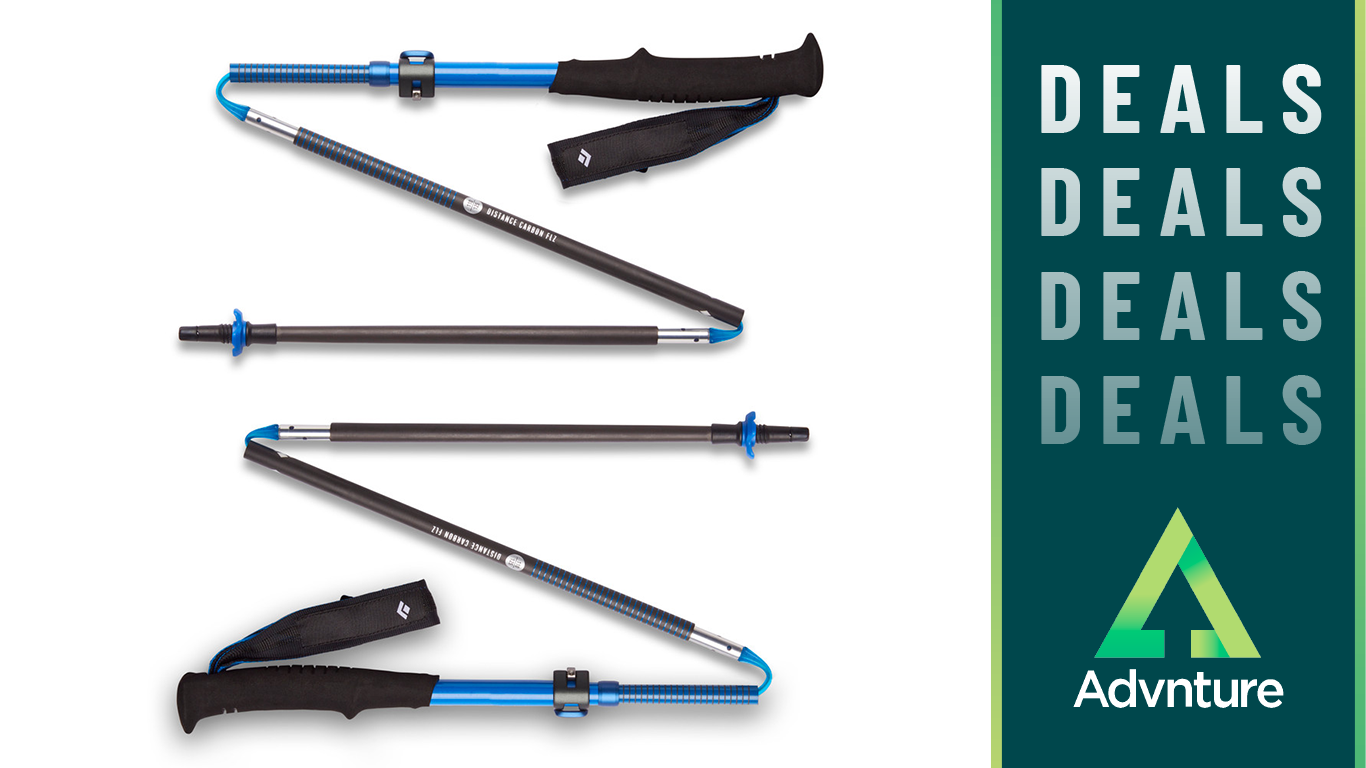Advnture Verdict
With a lightweight but tough construction, plenty of pockets, recycled content and great breathability, it's tough to take issue with this high performing fleece
Pros
- +
Lightweight
- +
Great breathability and moisture management
- +
Quick drying
- +
Plenty of proper pockets
- +
High collar
- +
Elasticated cuffs and high collar
- +
Made with recycled materials
Cons
- -
No thumb holes
- -
Hem not elasticated
You can trust Advnture
Meet the reviewer

Julia Clarke is a staff writer for Advnture.com and the author of the book Restorative Yoga for Beginners. She loves to explore mountains on foot, bike, skis and belay and then recover on the the yoga mat. Julia graduated with a degree in journalism in 2004 and spent eight years working as a radio presenter in Kansas City, Vermont, Boston and New York City before discovering the joys of the Rocky Mountains. She then detoured west to Colorado and enjoyed 11 years teaching yoga in Vail before returning to her hometown of Glasgow, Scotland in 2020 to focus on family and writing.
The North Face Stormgap Power Grid jacket: first impressions
A fleece jacket can mean a lot of things: bulky outer layer, ultralight base layer or streamlined mid layer. This lightweight fleece jacket from The North Face has gone for the latter, with a low profile, full-zip design that can add insulation under a waterproof jacket or shell, or make a light outer layer for early starts and cool summits during the summer the summer months.
Fleece's insulating power is easily its most appealing quality, but for any jacket you plan to wear during vigorous activity, you also require moisture-wicking capabilities and breathability, and this jacket offers those in bucket loads thanks to the power grid fleece lining. We've worked up quite a sweat in this jacket on a mild day and haven't even had to unzip.
• List price: £120
• Gender specification: Men's and women’s sizing available
• Sizes: S - XXL Men's, XS - XL Women's
• Weight (Women's XS, short): 9.5 oz / 270 g
• Materials: 93% Recycled Polyester, 7% Elastane
• Colors: Black, Black-Asphalt Grey, Lite Lilac-Asphalt Grey,
Adriatic Blue-Black, Monument Grey-Anthracite Grey-Black
• Best use: Hiking, Climbing
The face fabric is tough enough to withstand ropes, rock and backpack strap and it's built to avoid the annoying pilling we expected from our fleece jackets in the 1990s. A high collar seals out a draft, while the cuffs and hem are elasticated and sit flush against the body, though they do lack adjustability and thumb holes.
Added stretch is enough that you can move dynamically in this fleece and three zipped pockets provide ample storage space for phones, cards and hands. There's no mention of antimicrobial treatment but for a synthetic garment, this one doesn't get too smelly with a single use, which is always a bonus. Made with recycled content and at a moderate price point, we can't find much to argue about with this high-performing fleece.
The North Face Stormgap Power Grid jacket: in the field
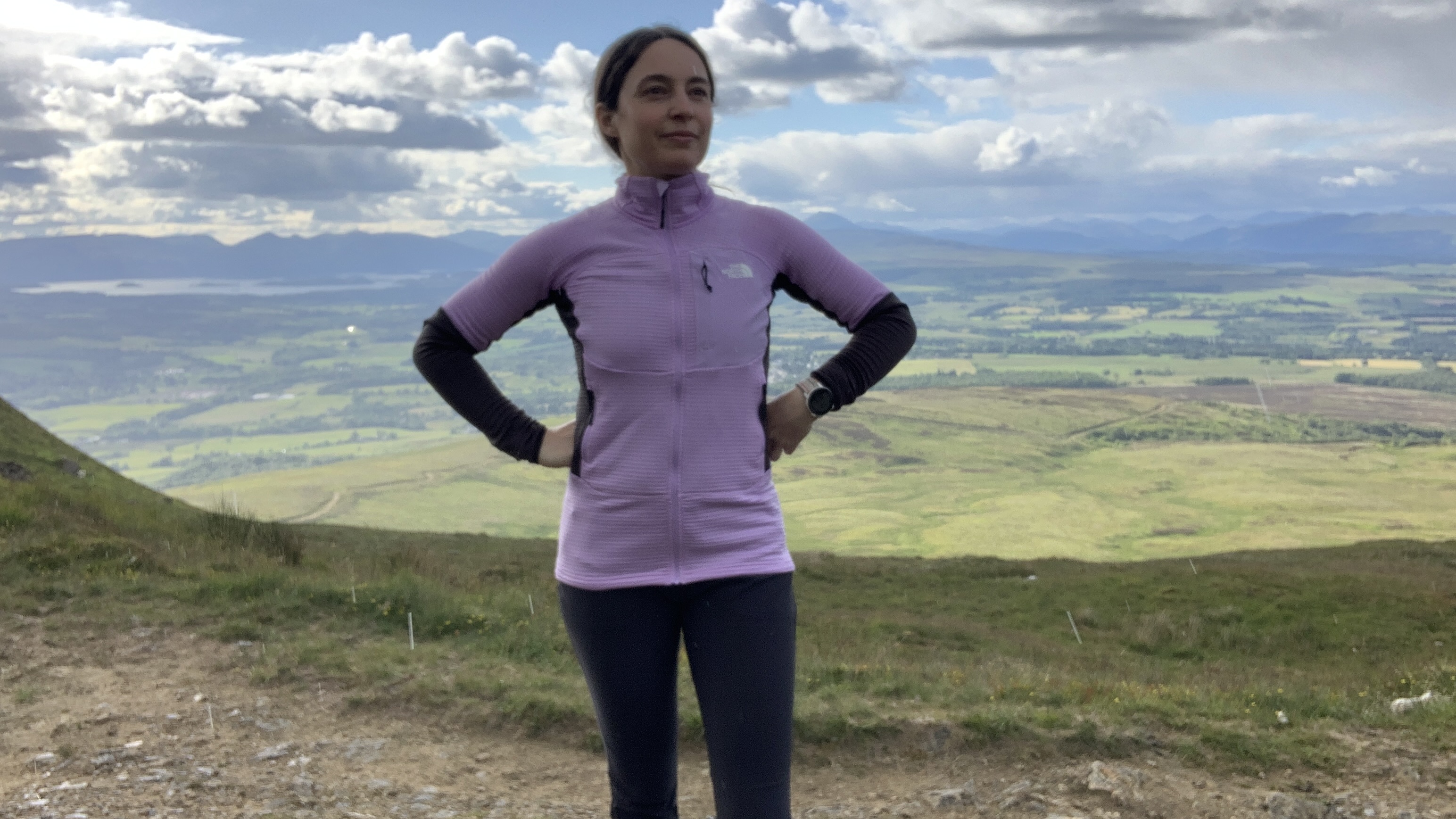
As a hiker, I can never get enough of fleece jackets, but some are too bulky, others too light, and those ones quite often end up at the bottom of the drawer, rarely seeing the light of day.
I got to test this fleece out on a recent press trip to Corsica where the early spring temperatures were still quite mild (there was even snow up high one night) and an extra layer was needed for our hiking, mountain biking and via ferrata activities. Since then, I've had it out as an outer layer (occasionally with a rain coat) on some mild hikes here in Scotland.
Here’s how it performed:
Sizing, fit and comfort
I usually wear a small, that's what I tested and I think it fits perfectly. It's flush against my body everywhere without being annoyingly tight or catching anywhere. The high neck doesn't chafe and prevents a cold breeze, the sleeves are fairly long so I could hide my hands inside them when I want (this could mean annoying bunching around the wrists when layering, however) and it comes down to about mid hip. There's nothing I'd change except perhaps the sleeve length, but I'm also the first to admit to short arms.
I haven't had any issues with comfort personally. The elasticated cuffs aren't too tight on me but it does occur to me that someone with a thicker wrists might find them restrictive.
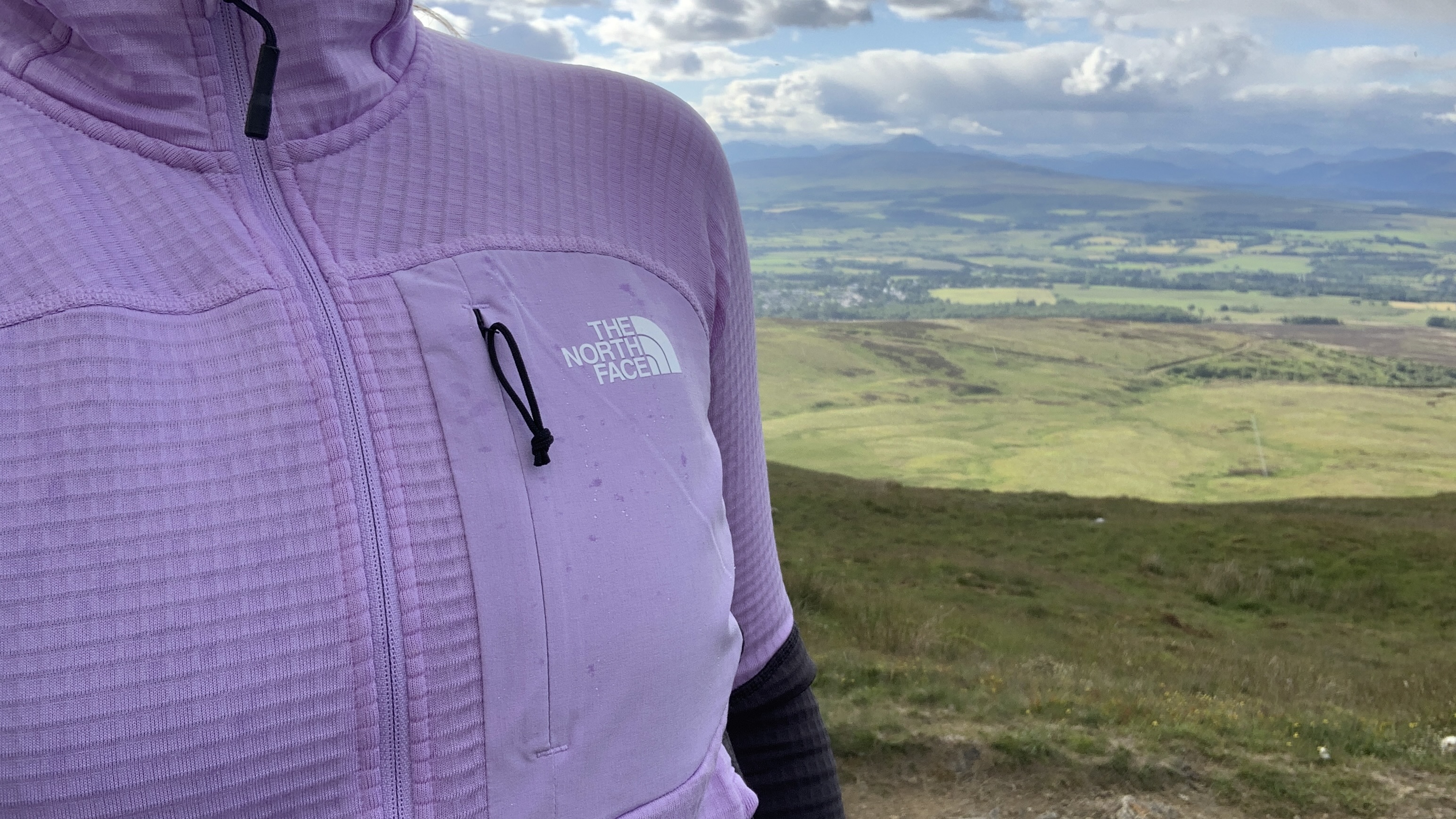
Moisture management and breathability
When I wore this fleece in Corsica, it was cool out and I welcomed the warmth, however to test its breathability I recently wore it, zipped all the way up, on a steep hike in 60-degree weather. At first, I thought I might struggle, but I was actually really impressed with its breathability and didn't feel like I wanted to tear it off at any point. I got a bit of a sweat on, but it never built up on the inside of the fleece and when I got back to the car, the back and armpits were dry in a flash.
Weight and packability
This fleece is on the light (but not ultra light, admittedly) end of the spectrum and while fleece isn't the most packable material, it actually rolls up smaller than a Nalgene bottle, so I'd consider bringing it along on a hike where I wasn't sure if I'd really need it.
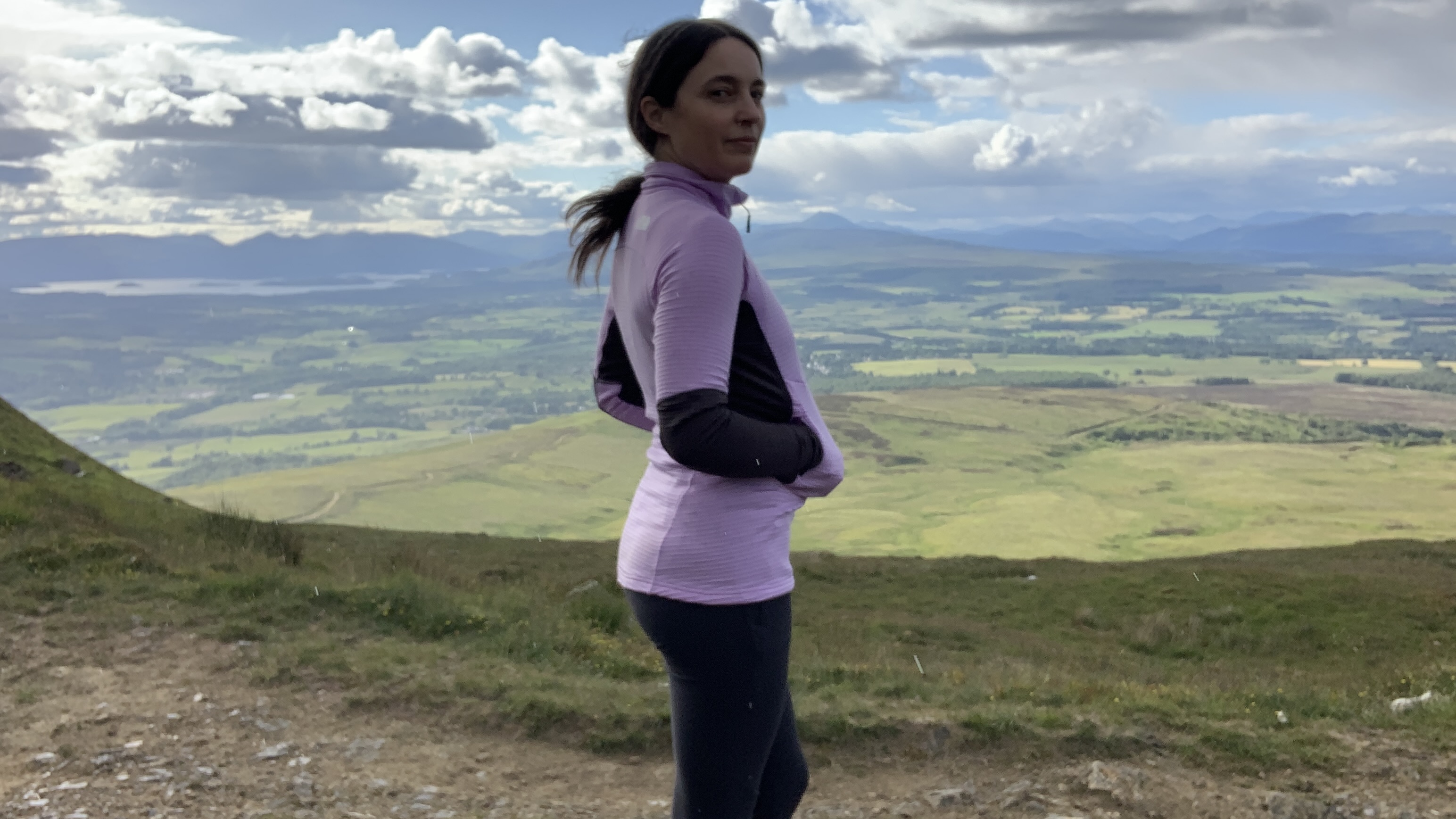
Odor control and pockets
We all know that synthetic fabric gets smelly with use, and this is one area where I don't love fleece. That said, after sweating in this jacket, it actually wasn't too stinky the next day and I was happy to wear it again.
One place where this fleece shines is in all the pockets. I've got so used to lighter fleeces having no pockets that at first I missed how many this has. Two deep zipped hand-warming pockets hold my phone without stretching out, and I can put a credit car in the chest pocket.
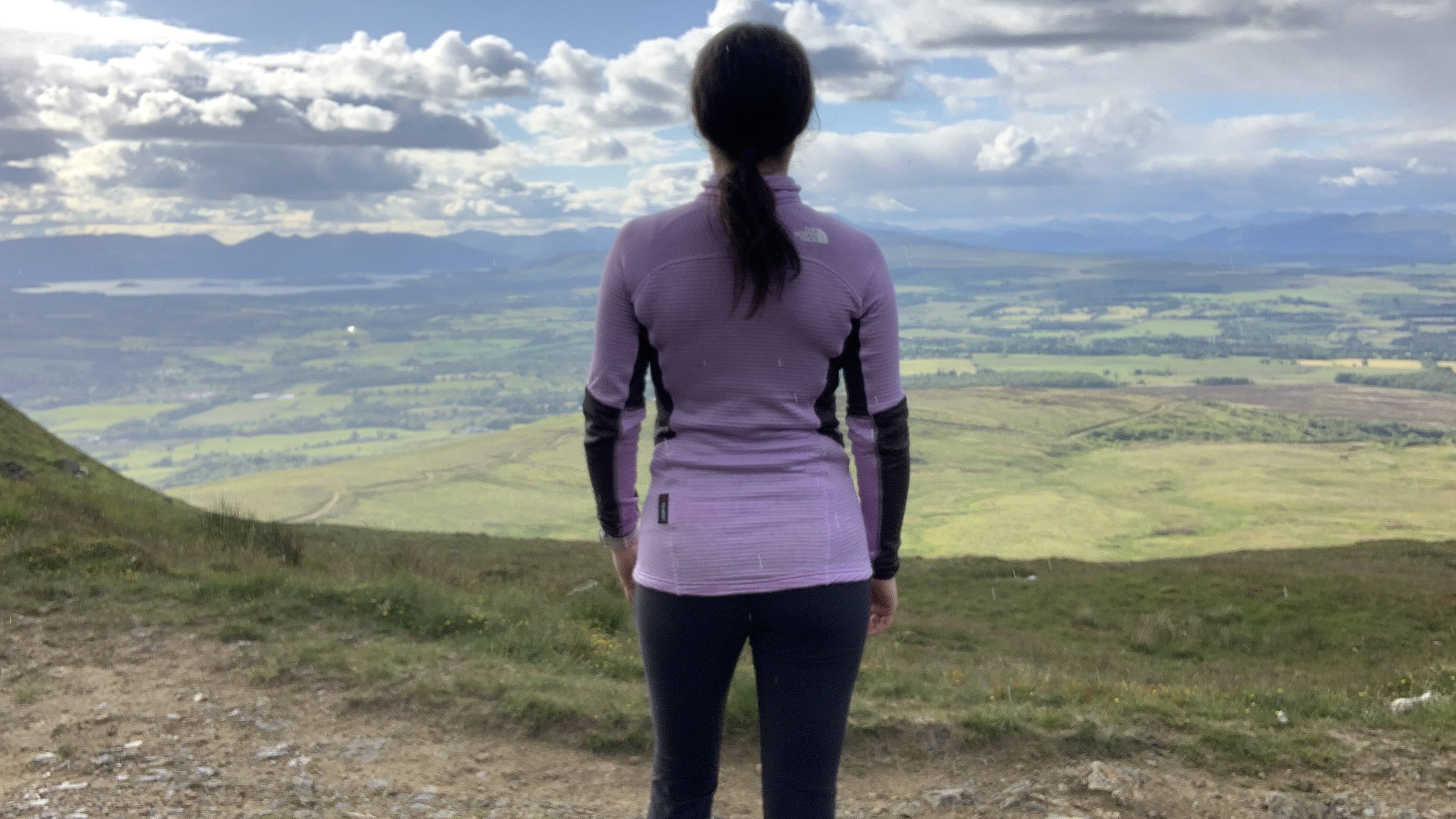
The North Face Stormgap Power Grid jacket: the bottom line
Performance talks, and we found this fleece to be warm but exceptionally breathable and durable, making it a good choice for high intensity adventures. The addition of good storage makes it as valuable as an outer layer and a mid layer, and we're pleased with both the recycled content and the price point. For something a bit softer, the Montane Fury Lite jacket is worth a look, too.
Julia Clarke is a staff writer for Advnture.com and the author of the book Restorative Yoga for Beginners. She loves to explore mountains on foot, bike, skis and belay and then recover on the the yoga mat. Julia graduated with a degree in journalism in 2004 and spent eight years working as a radio presenter in Kansas City, Vermont, Boston and New York City before discovering the joys of the Rocky Mountains. She then detoured west to Colorado and enjoyed 11 years teaching yoga in Vail before returning to her hometown of Glasgow, Scotland in 2020 to focus on family and writing.
